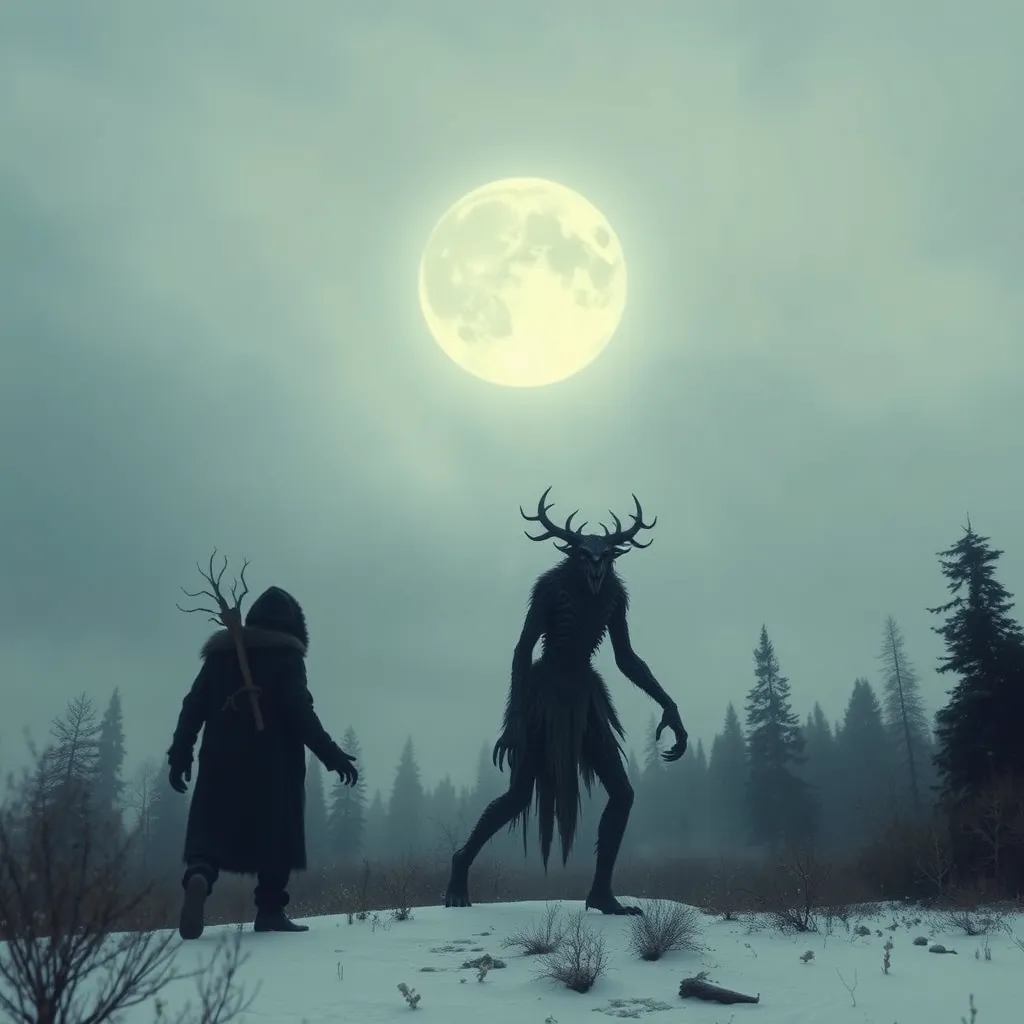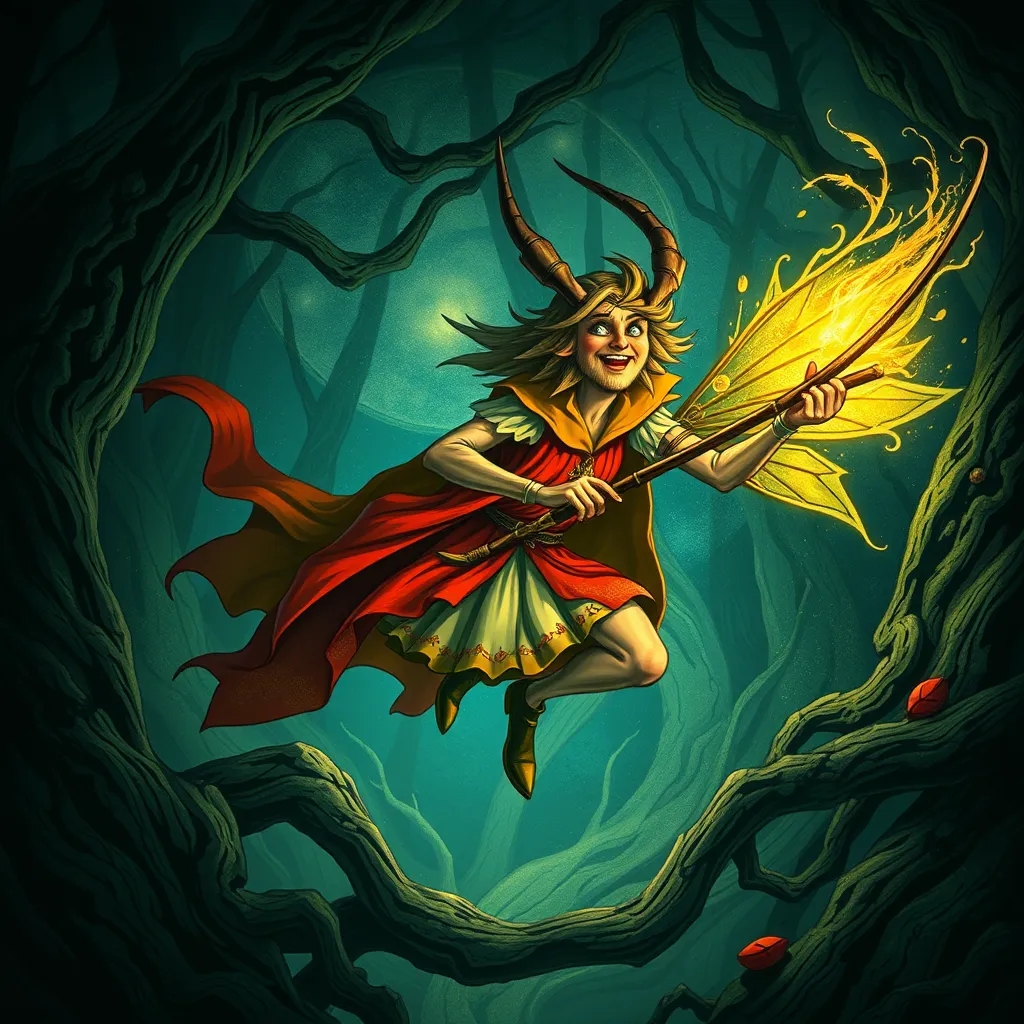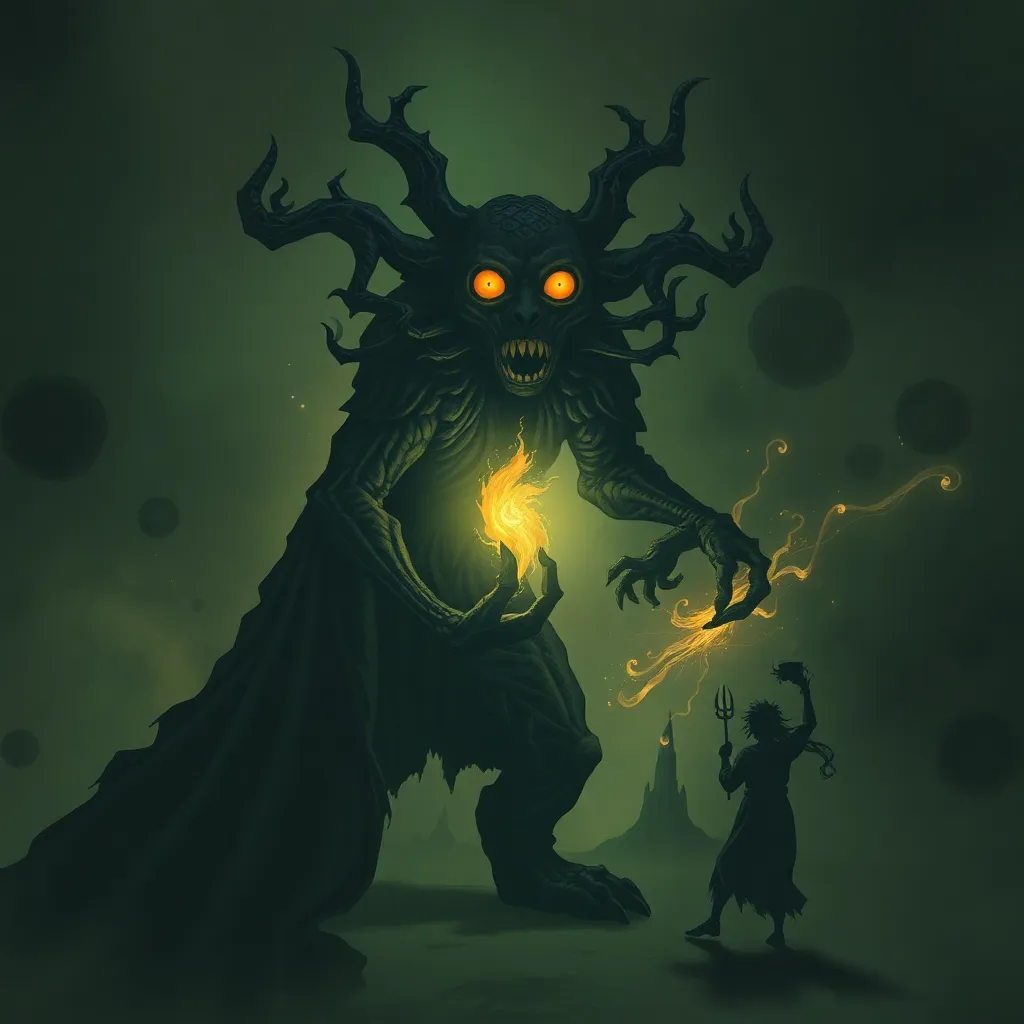Wendigo: A Global Perspective: Examining the Wendigo’s Impact on Cultures beyond North America
I. Introduction
The Wendigo is a fascinating and chilling figure rooted in the folklore of the Algonquian-speaking tribes of North America. Often depicted as a monstrous, emaciated being with an insatiable hunger for human flesh, the Wendigo embodies themes of greed and moral decay. Its legend has transcended its original context, influencing various cultures and narratives across the globe.
This article aims to explore the Wendigo’s cultural significance beyond North America, examining its characteristics, symbolism, and the way it has been integrated into various cultures and modern media.
II. The Wendigo Mythos: Characteristics and Symbolism
The Wendigo is not just a creature of horror; it represents deeper psychological and societal themes. Here are some key characteristics:
- Physical Traits: The Wendigo is often described as gaunt, with a skeletal frame, glowing eyes, and a heart of ice, symbolizing its lack of humanity.
- Psychological Traits: The Wendigo embodies insatiable greed and the overwhelming desire to consume, reflecting the darker aspects of human nature.
The symbolism of the Wendigo extends to themes of:
- Greed: The endless hunger of the Wendigo serves as a warning against selfishness and excess.
- Moral Decay: The transformation into a Wendigo often represents a loss of humanity and the consequences of succumbing to base instincts.
When compared to other cannibalistic figures in global folklore, the Wendigo shares similarities with creatures like the Aswang and the Werewolf, indicating a universal fear of cannibalism and moral corruption.
III. Wendigo in Indigenous Cultures of Canada and the United States
In the cultures of the Algonquian tribes, the Wendigo holds a significant place in moral teachings and community behavior.
- Role in Algonquian Tribes: The Wendigo serves as a cautionary tale, warning against the dangers of greed and selfishness, especially in times of scarcity.
- Influence on Community Behaviors: The legend encourages communal unity and the sharing of resources, reinforcing social norms that prioritize the well-being of the group over individual desires.
- Modern Interpretations: Today, Indigenous storytellers reinterpret the Wendigo, blending traditional narratives with contemporary issues, making the myth relevant for new generations.
IV. Similar Cannibalistic Legends in Global Cultures
Across the world, various cultures have their own versions of cannibalistic legends that echo the themes found in the Wendigo myth. Some notable examples include:
- The Aswang: In Philippine folklore, this shape-shifting creature is known for its insatiable appetite for human flesh, particularly pregnant women.
- The Manananggal: Also from Southeast Asia, this vampire-like creature separates its upper body from its lower half to hunt for victims at night.
- Werewolves: In European folklore, werewolves are often depicted as cursed humans who transform into wolves and exhibit cannibalistic tendencies during the full moon.
V. The Wendigo’s Influence on Popular Culture
The Wendigo’s presence in popular culture has grown significantly, influencing literature, film, and television.
- Representation: The Wendigo often appears in horror narratives, symbolizing the breakdown of societal norms and the primal instincts within humans.
- Case Studies: Notable works include Stephen King’s ‘Pet Sematary,’ where elements of the Wendigo reflect themes of life, death, and the consequences of defying nature, and the television series ‘Supernatural,’ which portrays the Wendigo as a fearsome creature lurking in the woods.
- Cultural Implications: The adaptation of the Wendigo in contemporary horror highlights the ongoing relevance of the myth, serving as a mirror to societal fears.
VI. Psychological and Sociological Reflections of the Wendigo
Examining the Wendigo through a psychological lens reveals deeper insights into human behavior:
- Cannibalism as a Psychological Phenomenon: The fear of cannibalism resonates with innate survival instincts and societal taboos.
- Metaphor for Societal Issues: The Wendigo can symbolize the destructive effects of colonialism, where resources are exploited at the expense of indigenous cultures.
- Modern-Day ‘Wendigo’ Phenomena: Today, the Wendigo metaphor extends to consumerism and environmental exploitation, illustrating humanity’s insatiable appetite for more, often leading to self-destruction.
VII. The Globalization of Wendigo Lore
With the rise of the Internet and social media, the Wendigo myth has gained a global audience, leading to new interpretations and adaptations.
- Spread of the Myth: Online platforms have facilitated the sharing of Wendigo stories, allowing for cross-cultural engagement and interest.
- Cross-Cultural Adaptations: The myth has been reimagined in various cultural contexts, reflecting local fears and societal issues.
- Impact of Globalization: While globalization can enrich narratives, it also threatens the authenticity of traditional stories, necessitating a balance between adaptation and preservation.
VIII. Conclusion
In conclusion, the Wendigo serves as a powerful symbol of cultural significance that transcends its origins in North America. Its themes of greed, moral decay, and the consequences of humanity’s darker instincts resonate across different cultures and continue to influence modern narratives.
Preserving indigenous narratives is crucial for understanding their global impact and relevance. As we explore cross-cultural folklore, we gain insights into the human experience, reminding us of the universal themes that connect us all.
Encouraging further exploration of these stories will not only honor their origins but also foster a deeper appreciation for the rich tapestry of human mythology.



